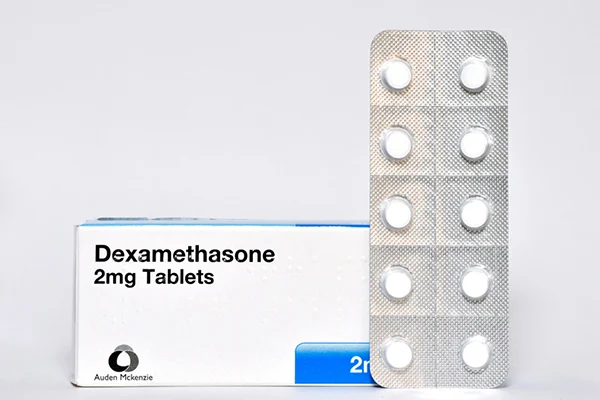| |||||
|
Hello Nature readers,
Today we hear that dexamethasone is the first drug to be shown to reduce deaths among people seriously ill with COVID-19. Plus, we ponder the super-eruption that once rocked Yellowstone. |
|||||

|
|||||
| Castle Geyser erupting in Yellowstone National Park. (Getty) | |||||
Yellowstone had even more explosive past
Almost nine million years ago,
the Yellowstone volcanic hotspot, which stretches over areas of the
western United States, experienced one of the largest eruptions ever
known. An array of analyses has revealed that rocks once thought to have
formed in several distinct eruptions came from a single
‘super-eruption’. The event scattered 2,800 cubic kilometres of rock and ash over an area of tens of thousands of square kilometres.
“When you get your maps out and measure the scale, you think, ‘That
can’t be right,’” says geochemist Thomas Knott. “‘They can’t possibly be
that far apart and be from the same volcanic eruption.’”
Scientific American | 4 min read
Source:
Geology paper
|
|||||
|
|
|||||
Twitter’s saddest weeks ever
Researchers aiming to quantify global happiness on social media have called the period starting on 26 May “the saddest two weeks” on Twitter.
Since 2008, a pair of applied mathematicians have been gauging the
positivity and negativity of randomly sampled tweets. Their happiness
index had been gradually recovering from the bleak beginnings of the
coronavirus pandemic, but dropped sharply following the killing of
George Floyd in Minnesota late last month. The lowest point, in May, was
far below the previous record, hit after a mass shooting in Las Vegas,
Nevada, in 2017. But sadness can galvanize people into action. “It’s one
thing to tell the world ‘this is the saddest week’,” says social
scientist Desmond Patton. “But also in the saddest week, you have
thousands and thousands of people who are now activated and moving
towards equality and social justice.”
Nature | 3 min read
|
|||||
|
|
|||||
Sharpiegate panel condemns NOAA head
The head of the US National Oceanic and Atmospheric Administration (NOAA) violated the agency’s ethics code last year when he backed up US President Donald Trump’s claims
that a hurricane could hit Alabama, finds a NOAA panel. The panel
concluded that acting administrator Neil Jacobs “engaged in the
misconduct intentionally, knowingly, or in reckless disregard” of the
agency’s scientific-integrity policy by censoring its office in
Birmingham, Alabama, which had tweeted that the state would not see a
major impact from Hurricane Dorian. The controversy was dubbed
‘sharpiegate’ after Trump showed a NOAA map that had been altered with a
black marker during a press conference last September.
New York Times | 3 min read
|
|||||
|
|||||

|
|||||
Notable quotable“I eat, breathe, sleep science.”
In 2018, biologist Lynika Strozier told the
Chicago Reader about her passion for science. On Wednesday, the Field Museum in Chicago, Illinois, where she worked, announced that Strozier had died owing to complications from COVID-19, aged 35. Strozier, who had a disadvantaged childhood and a learning disability, established an enviable scientific career. Her family and colleagues plan to establish a scholarship fund for aspiring scientists in her honour.
|
|||||
|
|||||
Study animals are often STRANGE
Are your turtles tired, your
spiders jaded or your fish oddly bold? Ten years to the day after the
call to widen the pool of human participants in psychology studies
beyond those from WEIRD societies (that’s Western, Educated,
Industrialized, Rich and Democratic), animal-behaviour researchers
Michael Webster and Christian Rutz write that “mounting evidence
suggests that there could be similar sampling problems in research on
animals”. They propose a framework with a fitting acronym — STRANGE — that researchers can use to design studies, and to declare and discuss potential biases.
Nature | 10 min read
|
|||||
Quote of the day“It’s a startling result. It will clearly have a massive global impact.”
Intensive-care physician
Kenneth Baillie, who serves on the steering committee of the RECOVERY
coronavirus-drug trial, responds to results suggesting that
dexamethasone reduces deaths among seriously ill people with COVID-19. (Nature | x min read)
|
|||||
|
|
|||||
|
|||||
|
|
Wednesday, June 17, 2020
Nature Briefing
Subscribe to:
Post Comments (Atom)

No comments:
Post a Comment